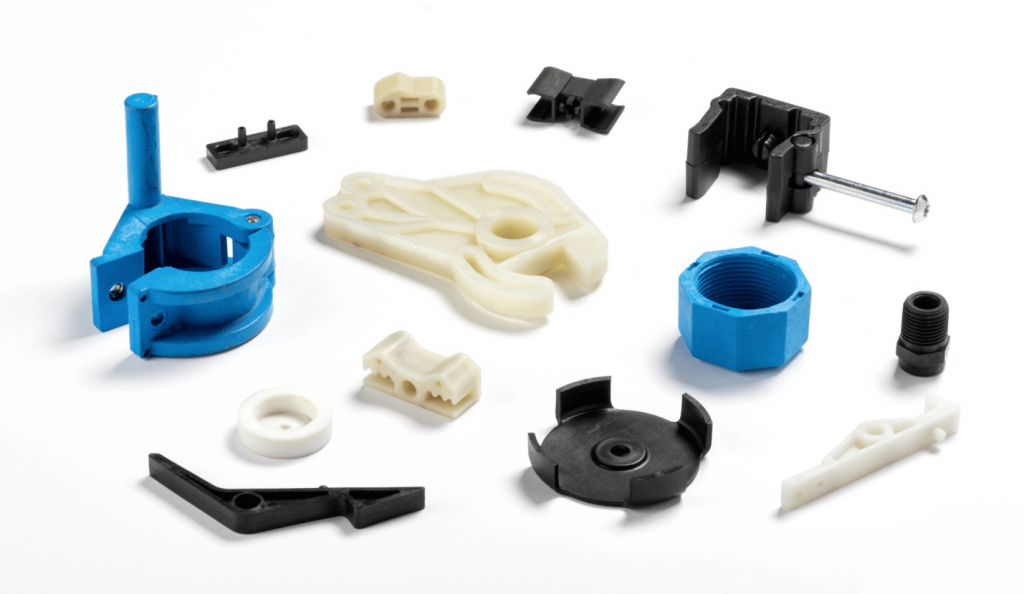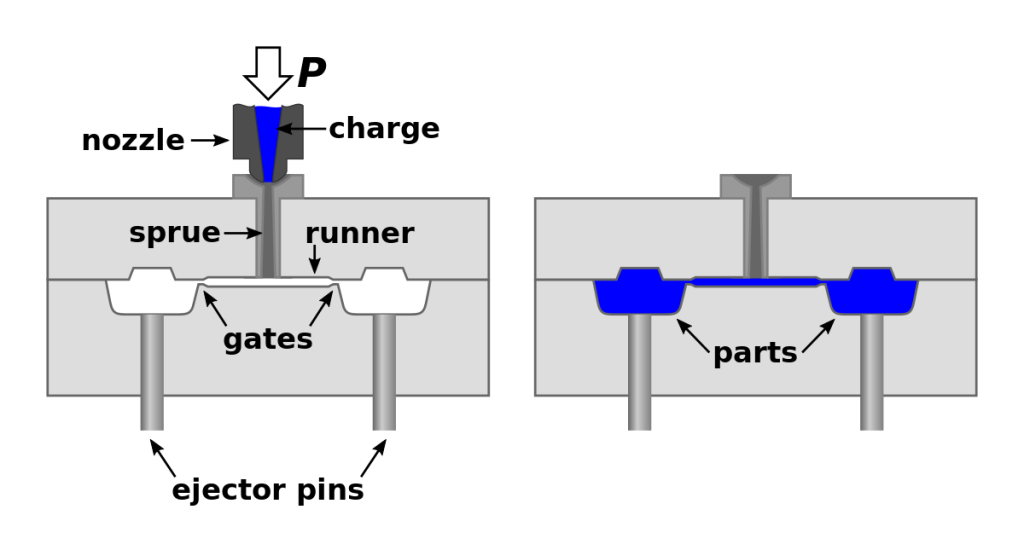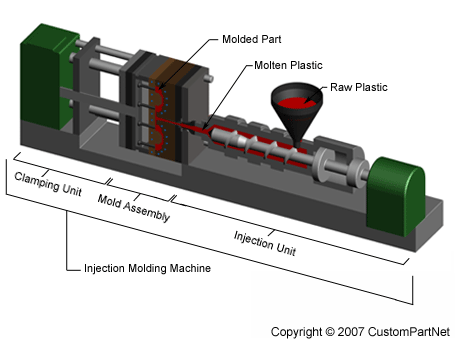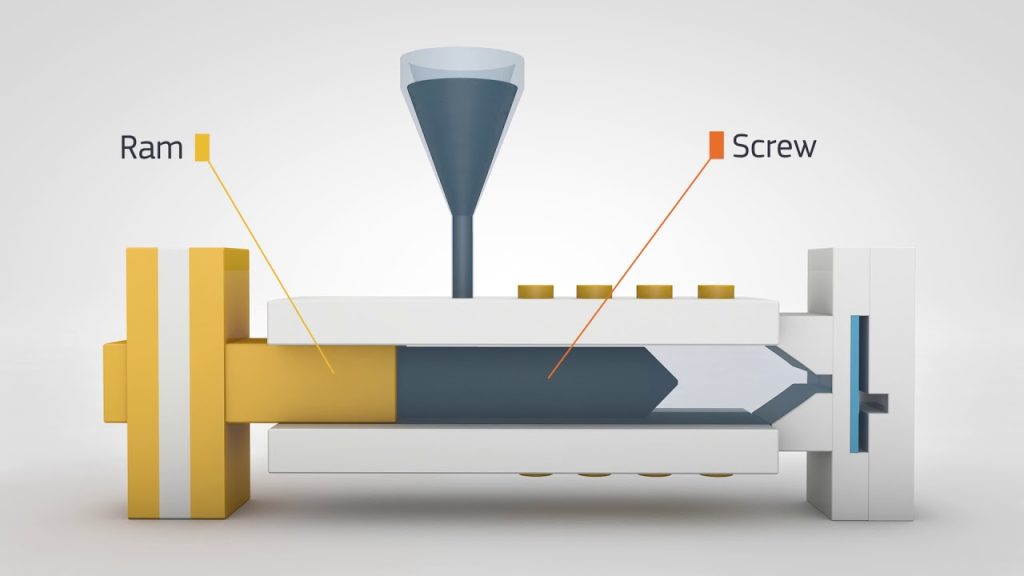Table of Contents
Plastics are an integral part of our daily lives. From the containers we use to store food to the toys our children play with, plastics are ubiquitous. Among the many types of plastics, HDPE (High-Density Polyethylene) stands out for its durability, strength, and versatility. However, the question that often arises is whether HDPE can be injection molded.
Injection molding is a widely used manufacturing process for producing plastic parts in large volumes. It involves injecting molten plastic into a mold cavity and allowing it to cool and solidify into the desired shape. But is HDPE suitable for this process? In this article, we will explore the properties of HDPE and its suitability for injection molding.
Can HDPE Be Injection Molded?
High-density polyethylene (HDPE) is a popular thermoplastic polymer that is extensively used in various industries. Its unique properties make it an ideal material for manufacturing a wide range of products. One of the popular methods of manufacturing HDPE products is through injection molding. But can HDPE be injection molded? Let’s find out!
Understanding HDPE
HDPE is a thermoplastic polymer that is made from ethylene monomer. It is a high-density polymer that is known for its excellent stiffness, chemical resistance, and impact strength. HDPE is widely used in manufacturing pipes, containers, and packaging products. It is also used in the automotive and construction industries.
When it comes to injection molding, HDPE is a popular material choice due to its excellent flow properties. HDPE is also known for its low shrinkage rate, which makes it an ideal material for manufacturing complex, high-precision parts.
Can HDPE be Injection Molded?
Yes! HDPE can be injection molded. In fact, injection molding is one of the most common methods used for manufacturing HDPE products. Injection molding involves heating the HDPE material to a molten state and injecting it into a mold. The molten HDPE material then cools and solidifies in the mold, taking on the shape of the mold cavity.
During the injection molding process, the HDPE material is subjected to high pressure and temperature. This helps in achieving the desired shape and properties of the final product. The process also allows for mass production of identical parts at a relatively low cost.
Benefits of Injection Molding HDPE
Injection molding HDPE offers several benefits, which makes it a popular manufacturing method. Some of the benefits include:
1. High Precision: Injection molding HDPE allows for the manufacturing of high-precision parts with tight tolerances.
2. Cost-Effective: Injection molding HDPE is a cost-effective method of manufacturing identical parts in large quantities.
3. Design Flexibility: Injection molding HDPE allows for the manufacturing of complex shapes and designs.
4. Low Waste: Injection molding HDPE generates less waste compared to other manufacturing methods.
HDPE vs. Other Materials
HDPE has several advantages over other materials when it comes to injection molding. For instance, HDPE has a low melt viscosity, which makes it easy to flow into the mold. It also has a low shrinkage rate, which means that the final product will have minimal distortion.
Compared to other materials like polypropylene and polystyrene, HDPE is more resistant to chemicals, making it an ideal material for manufacturing containers and pipes. HDPE is also more resistant to impact and abrasion, making it a popular material in the automotive and construction industries.
Conclusion
In conclusion, HDPE can be injection molded, and it is a popular material choice for manufacturing a wide range of products. Injection molding HDPE offers several benefits, including cost-effectiveness, design flexibility, and low waste generation. Compared to other materials, HDPE has several advantages, such as low shrinkage rate, excellent chemical resistance, and impact strength.
Frequently Asked Questions
Here are some commonly asked questions about injection molding with HDPE.
Can HDPE be injection molded?
Yes, HDPE can be injection molded. Injection molding is a popular manufacturing process used to create a wide range of plastic products, including those made from HDPE.
During the injection molding process, HDPE pellets are melted and injected into a mold under high pressure. The mold is then cooled, and the plastic part is ejected from the mold. This process can be used to create a variety of HDPE products, including containers, toys, and automotive parts.
What are the advantages of injection molding HDPE?
There are several advantages to injection molding HDPE. For one, it is a more cost-effective manufacturing process than other methods, such as blow molding or rotational molding. Injection molding also allows for the creation of complex, intricate shapes with high precision and accuracy.
Furthermore, HDPE is a versatile material that is resistant to chemicals, moisture, and impact, making it ideal for a wide range of applications. It is also a recyclable material, which makes it an environmentally friendly choice for manufacturers.
What are the disadvantages of injection molding HDPE?
While there are many advantages to using injection molding for HDPE, there are also some disadvantages to consider. One potential disadvantage is the high cost of the injection molding equipment, which can be expensive to purchase and maintain. Additionally, the process requires a high degree of expertise and skill to ensure that the final product meets the required specifications.
Another potential disadvantage is the limited size of parts that can be produced using injection molding. If you need to create large or bulky parts, you may need to use a different manufacturing process, such as blow molding or rotational molding.
What are some common applications for injection molded HDPE?
Injection molded HDPE is used in a wide range of industries and applications. Some common applications include packaging for food and beverages, automotive parts, toys and games, and household goods.
HDPE is also commonly used for industrial applications, such as in the construction of pipelines, tanks, and other large-scale structures. Its resistance to chemicals and moisture makes it ideal for use in these types of applications.
What factors should be considered when choosing an injection molding supplier for HDPE?
When choosing an injection molding supplier for HDPE, several factors should be considered. One important factor is the supplier’s expertise and experience with HDPE injection molding. It is important to choose a supplier that has a proven track record of success and has experience working with a variety of different HDPE products.
Other factors to consider include the supplier’s production capabilities, quality control processes, and pricing. It is also important to choose a supplier that is reliable and responsive and can meet your production needs on time and within budget.
In conclusion, HDPE can indeed be injection molded. This process involves melting the HDPE plastic pellets and injecting them into a mold cavity, where they cool and solidify into the desired shape. The resulting product is strong, durable, and resistant to chemicals and moisture.
Injection molding is a cost-effective and efficient manufacturing method for producing large quantities of HDPE products. It allows for precise control over the size, shape, and thickness of the final product, making it ideal for a variety of applications in industries such as packaging, automotive, and construction.
Overall, HDPE injection molding offers numerous benefits, including high production rates, low waste, and design flexibility. As such, it is a popular choice for manufacturers looking to produce high-quality, durable plastic products.
Request a quote today!
[contact-form-7 id="1578" title="Contact form"]
Please compress the file into a ZIP or RAR file before uploading. Alternatively, send through your RFQ by email.
enquires@unitymanufacture.com





